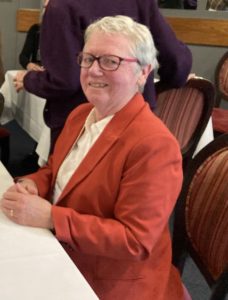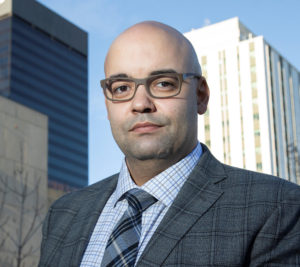I commend to readers the article by Elizabeth Smythe, my former intergovernmental colleague in Wednesday’s Edmonton Journal.

Opeds by Dr. Smythe and Jared Wesley in The Tyee are honest attempts by political scientists to do what they are trained for- to provide objectively-based warnings about how fragile our democratic institutions have become. Recent moves by the Smith government to smother dissent in municipal councils is another worrying sign (Bills 18 and 20).

As Wesley states in the Tyee “There’s no hard-and-fast line between democracy and authoritarianism. Just ask people from autocracies: you don’t simply wake up one day under arbitrary rule.” A 30-minute interview between Jared and I can be found at this link The State of Democracy in Alberta- A conversation with Jared Wesley at ABPolEcon.ca
As a political scientist, or maybe a lapsed one, I too feel responsible for speaking out by identifying warning signals.
Smythe gives a concise summary and analysis of the various tools employed by the UCP government, under both the Kenney government and Smith, consistent with a playbook followed by other authoritarian governments. Under their governments public opinion is being molded by the constant attacks against the federal government, specifically the “radical activist” Stephen Guilbeault.
“In February, federal NDP MP Charlie Angus introduced a bill that threatened fines and jail time for Canada’s oil and gas industry if they tried to defend their record on the environment. Canadians were immediately outraged, and the bill was laughed away as being just plain crazy.
Any company not willing to risk millions of dollars in fines and legal fees will be forced to stay silent. And that is exactly the outcome that Minister of Environment and Climate Change Steven Guilbeault and the federal Liberal-NDP-Bloc Québécois alliance wants to happen.
Rebecca Schulz “Bill C-59 gag-order must be stopped: Minister Schulz,” 29 May 2024
The Kenney government’s approach to policy-making was an abrupt departure from previous governments and more confrontational viz-a-viz the federal government. This approach has become more aggressive under Smith with Rebecca Schulz as her pit bull Minister of the Environment and Protected Areas. Under both Kenney and Smith, the governments became infamous for not consulting key constituents such as doctors, teachers and municipal councillors, other than the oil and gas industry and the Canadian Federation of Independent Business.
Retaliation
Retaliation against senior public office holders (Dr. Deena Hinshaw, the former Elections Commissioner, Ed Whittingham) was not uncommon. Such practices continued under the Smith government with the dramatic removal of the AHS board and the de-hiring of Dr. Hinshaw.
Independent legislative offices are becoming partisan
More recently, appointments to independent legislative offices have become partisan. The former deputy minister of Labour, Shawn McLeod was appointed in April 2019 by Kenney after he unsuccessfully ran to be a UCP candidate. He is now the Province’s Ethics Commissioner. The Ethics Commissioner is a supposedly independent watchdog, a legislative office recently occupied by retired Queen’s Bench Justice Marguerite Trussler whose critical report of Smith one year ago was perhaps one of the reasons for the Legislative Committee not reappointing her. McLeod’s appointment was opposed by all NDP members on the committee, to no avail. We now have a partisan appointment in a “watchdog” role which could mean ethics inquiries will become politicized and could be used as a weapon against the opposition rather than as a tool to hold cabinet ministers to an accepted standard of behaviour. Another legislative officer who will be up for appointment during Smith’s term is the Auditor General who performs a critical role in evaluating government financial performance.
Legislative agenda
Unsettling legislation starting with Ms. Smith’s signature piece, Alberta (in a United Canada) Act, an Act which purports to allow the provincial cabinet to selectively pick which pieces of federal legislation will apply in Alberta. This bold approach to federal and intergovernmental affairs was succeeded by the Alberta Pension Protection Act which seeks to withdraw Alberta from the CPP, despite Ms. Smith’s election claims she “would not touch pensions.” This continued with Bill 18, the Provincial Priorities Act which strips municipalities’ and universities’ of freedom to negotiate agreements with the federal government independent of the provincial government.
The preamble reads:
Preamble
WHEREAS the Government of Canada has entered into agreements with provincial entities that relate to areas of provincial
jurisdiction without the involvement of the Government of Alberta;
WHEREAS agreements that the Government of Canada enters into with provincial entities should support provincial priorities and
investments; and
WHEREAS the Government of Alberta is best positioned to understand and determine the unique needs of its population;
Bill 20, the Municipal Affairs Statutes Amendment Act, 2024.
The Act among other things initiates a pilot project only in Calgary and Edmonton to have political parties eligible to run candidates. In addition, the ability to get rid of councillors has been centralized in the provincial cabinet. Labour unions and corporations are free to contribute to candidates or parties up to maximum thresholds. The Government is also eliminating voting machines and removing vouching in municipal elections which Professor Wesley finds especially pernicious. Watch 30-minute video conversation with Jared Wesley here.
Policing
The government has also slowly consolidated control over policing and brought the independence of the prosecutorial service into question.

My unease first was tweaked last summer when the crisis in Edmonton’s inner city spurred which reached fever pitch led to by murders in Chinatown. This tragedy was proceeded in February with the province “deploying sheriffs to downtown Edmonton.” On 25 April 23, Mike Ellis, Minister of Public Safety and Emergency Services announced in a press release entitled “Bringing criminals to justice,” the creation of a Fugitive Apprehension Sheriffs Support Team (FASST) to “ensure that offenders accused and convicted of crimes are swiftly brought to justice.” Two days later Ellis was reporting on the success of a 12-week “pilot project” between Alberta sheriffs and the Calgary Police Service was created to improve “public safety”. success of a 12-week “pilot project” between Alberta sheriffs and the Calgary Police Service created to improve “public safety.”
After the election was safely over, now Deputy Premier and Public Safety minister Mike Ellis introduced Bil 11, The Public Safety Statutes Amendment Act, 2024 which creates a “independent agency police services”, independent prosecutorial, and potentially courts through appointment.
Recent directions to University of Calgary and University of Alberta presidents through media comments to crush dissent on campuses should serve as a warning of the dangers of centralized power which increasingly controls the police. If you don’t feel safe on campus to express dissent on international issues, how will police behave when large protests against the provincial government happen on campus or at the legislature?
Related Posts
Alberta’s Public Accounts Committee- Thoughts on Accountability and Public Service Neutrality
The State of Democracy in Alberta- A conversation with Jared Wesley